The Circle, by Dave Eggers
>> Wednesday, October 28, 2015
TITLE: The Circle
AUTHOR: Dave Eggers
COPYRIGHT: 2013
PAGES: 504
PUBLISHER: Knopf
SETTING: Near future, in the US
TYPE: Fiction
SERIES: None
Fast, thrilling, compulsively addictive - The Circle is Dave Eggers's timely novel about our obsession with the internet.
When Mae is hired to work for the Circle, the world's most powerful internet company, she feels she's been given the opportunity of a lifetime. Run out of a sprawling California campus, the Circle links users' personal emails, social media, and finances with their universal operating system, resulting in one online identity and a new age of transparency. Mae can't believe her great fortune to work for them - even as life beyond the campus grows distant, even as a strange encounter with a colleague leaves her shaken, even as her role at the Circle becomes increasingly public...
Mae Holland's humdrum life changes when she gets at job at The Circle, a company that's basically Google + Facebook on steroids. The Circle is the product of a backlash against internet abuse. By linking everyone's online activities into one real identity they have, they claim, brought civility to the web.
Initially, all goes well. The campus-style offices are all about fun and a shared social life, and when her father gets ill, the company ensures her health insurance covers him. She's ecstatic at working for a company that treats its employees so well and that is trying to do good in the world, creating a more civil, transparent society. But soon things cross into territory that is not quite as comfortable. Transparency means that privacy is suspicious by definition, and some of the ways in which this manifests in everyday life makes Mae feel some twinges of discomfort.
The Circle, for all that it is satire, is probably one of the scariest books I've read. It's scary because it's believable and plausible. It's basically taking ideas that really exist in the world today (and which seem pretty reasonable!) to their extreme but impeccably logical conclusions. It's also scary because since its publication, several of those ideas have actually moved in the exact directions posited in the book, and because most of them feel like a continuation of what's already going on. If we've already privatised big chunks of the justice system and are thinking of privatising things like defense procurement, why not the running of elections?
So to me, as a commentary on society and the direction in which we seem to be going, this was great (I think my favourite moment was Mae's grave decision whether to send a frown to some evil Guatemalan paramilitaries, and her thoughts about how brave this made her). But this is fiction, so how does it work as a story, the device Eggers uses to develop his message?
Actually, pretty well. There are issues. There are elements that are predictable (e.g. the identity of the mysterious guy who becomes Mae's secret lover), and it's not exactly subtle (the company has procured and keeps in a tank a rare creature from the deep sea, a transparent shark who devours and destroys everything, including a turtle who looks a little bit like one of Mae's viewers' grandfather... if you don't see it immediately, and without the need for the explicit explanation provided, as a metaphor for the ultimate destructiveness and voracity of the Circle's drive for transparency, then you weren't paying attention). But it works, and that's because of Mae.
Yes, Mae is a bit thin as a character. She doesn't have much agency and is very reactive, almost submissive. But that, I felt, was the point. One of the things I thought was best about the book, and this might be spoilerish, so keep reading at your own risk, is that it turns out we're seeing things from the point of view of a character I didn't expect. I expected Mae would turn out to be someone who'd start out believing, but who'd increasingly feel trapped by the oppressiveness of the Circle. But no, Mae turns out to be a true believer. She's not in denial about the negative consequences (which come through loud and clear to the reader, even through her point of view); she just doesn't see them as negative consequences. She simply cannot conceive of points of view different from her own being other than crazy or antisocial. They are therefore discountable, and the people who hold them need to be brought in for their own good. It's chilling. So, in effect, the protagonist of the book is the villain, and her villainy is of the passive, unquestioning kind. And this comes to a truly fantastic climax with the ending. It was totally the right one.
MY GRADE: An A-.
AUDIOBOOK NOTES: I listened to the audiobook, and the narrator, Dion Graham, was brilliant. We're in Mae's point of view, so I was a bit surprised to see that the narrator was male, but given that Mae is not much more than a vehicle for Eggers' views (even though she herself doesn't espouse them), that kind of made sense. He got the nuances right, and I particularly liked the little bit of dismissive laughter in his voice when Mae made her rationalisations to be able to accept something particularly troublesome.





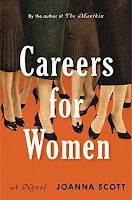
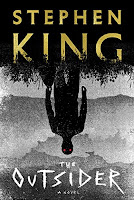
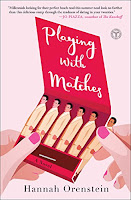
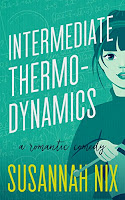
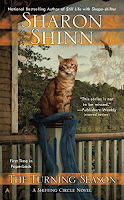
2 comments:
I read this a while ago and liked it for the same reasons you did - I can totally see many of the things that happened here, happening in real life. But I didn't enjoy how much of a sheep Mae was. I kept waiting for her to have her epiphany moment and was let down that it never came, so much so that it kind of took some of the shine off of the book for me.
I did keep expecting that to happen as well, but I liked that it didn't precisely because I didn't expect it!
Post a Comment